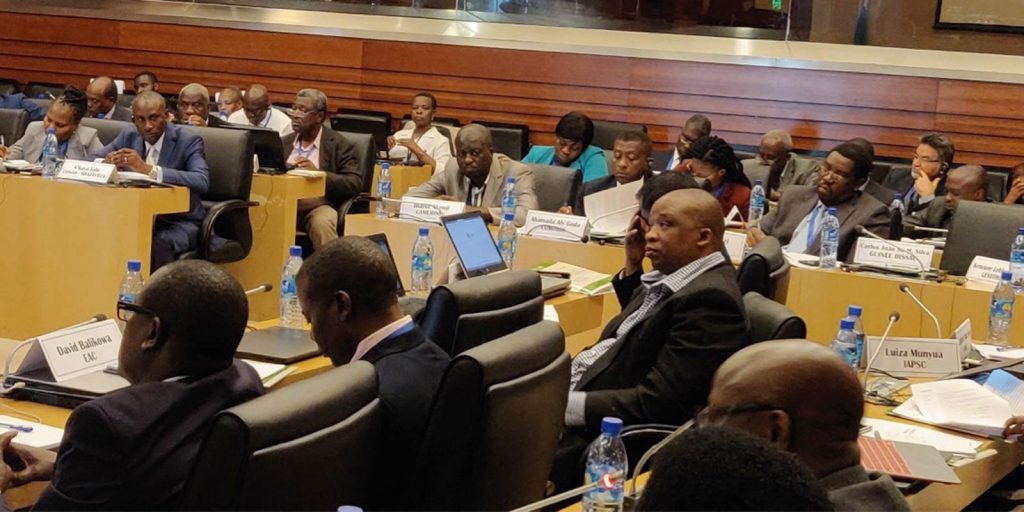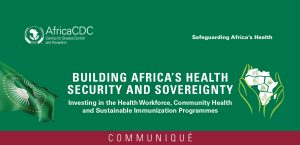The African Union Commission convened a meeting on 22–23 August 2019 to review the Commission’s draft strategy for controlling antimicrobial resistance (AMR) in Africa. Participants in the meeting included experts working on human, animal, environment and plant health, and food safety, representing Member States and partners.
In his opening remarks at the meeting, Dr John Nkengasong, Director, Africa Centres for Disease Control and Prevention (Africa CDC), reiterated the institutional authority of the African Union to promote continent-wide policy and advocacy on AMR and appealed for stronger partnerships to control AMR in the continent.
In a message delivered on his behalf, Prof. Ahmed Elsawalhy, Director, African Union Inter-African Bureau for Animal Resources (AU-IBAR), said: “The issue of AMR is of great concern particularly in Africa because of the threat on African citizens and the negative socio-economic impact on livelihood and well-being.”
He pledged the commitment of the African Union to support Member States in their efforts to control AMR.
“As a continental leader in animal health, AU-IBAR will support Member States in advocating for greater commitment to, and investment in, AMR control, and in strengthening policy, legislation and regulation for the production, importation, registration, distribution, and use of antimicrobials,” said Prof. Elsawalhy.
Antimicrobial resistant organisms are increasing globally, threatening to render existing treatments of infectious diseases ineffective. Public health officials fear a world in which diseases like pneumonia, meningitis and other common infections can no longer be cured because of AMR.
In October 2017, Africa CDC launched a Framework for Antimicrobial Resistance Control, 2018–2023 which focused mainly on human health. During a workshop in April 2018, African Union Member States requested Africa CDC to review the framework and upgrade it into an African Union framework which would also include animal, plant and environment health.
In response to this request, representatives of relevant African Union Commission agencies formed the Africa Union Task Force on Antimicrobial Resistance Control. The task force subsequently drafted the African Union Framework for AMR Control 2020–2025, which aims to: (i) improve surveillance of AMR organisms among humans, animals and plants; (ii) delay emergence of AMR; (iii) limit transmission of AMR; and (iv) mitigate harm among patients infected with AMR organisms.
“This Framework was originally focused on human health and did not address all other components necessary for a true One Health intervention. Since the task force was created in 2018, we’ve been working with colleagues across the African Union Commission to revise the framework and make it more responsive to every issue regarding AMR in Africa,” said Jay Varma, Senior Advisor on Science at Africa CDC. Participants in the meeting worked in groups to discuss and revise different sections of the framework to ensure that they truly reflect the intent for the framework. The revised version will be presented to the African Union Specialized Technical Committee on Agriculture and Environment for official endorsement in October 2019.







